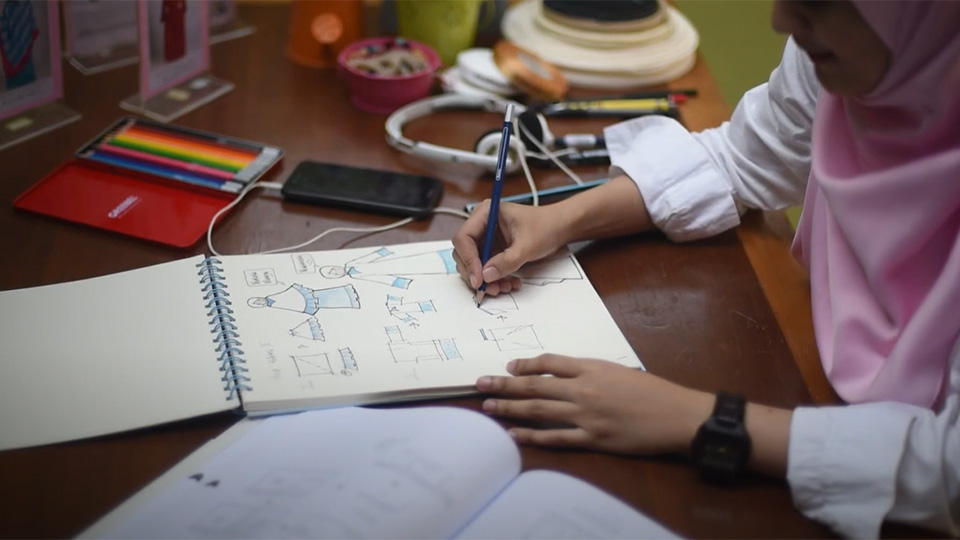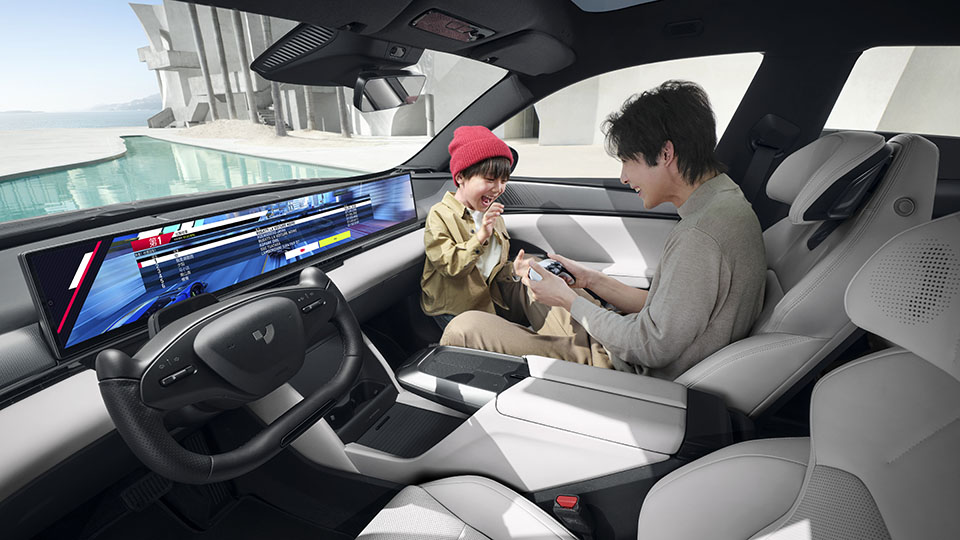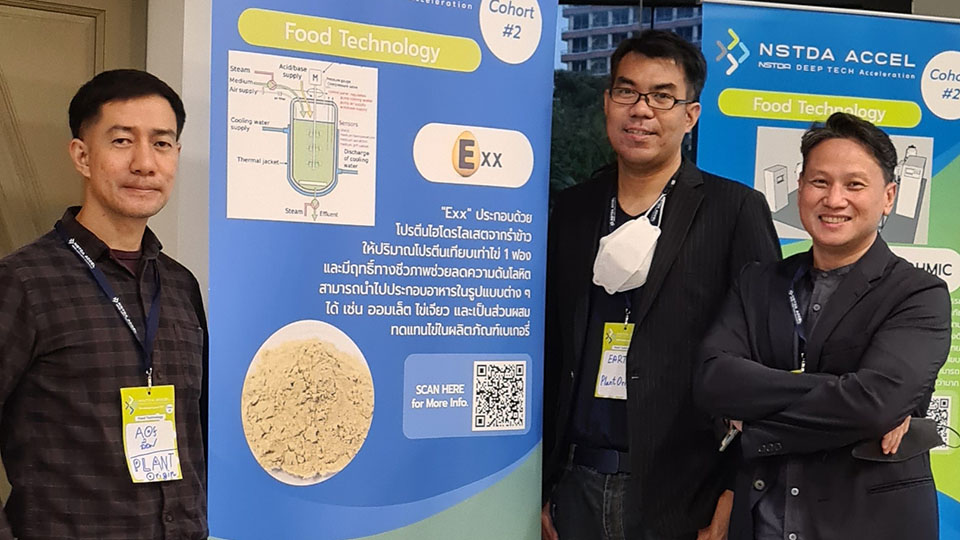A Family with a Mission: Revolutionizing Urban Mobility
In an era marked by urban congestion and heightened environmental concerns, one family has embarked on a multi-generational journey fueled by an unwavering entrepreneurial spirit. Meet the Ouboters, pioneers in the realm of micro-mobility, reshaping the landscape of urban transportation, one project at a time.
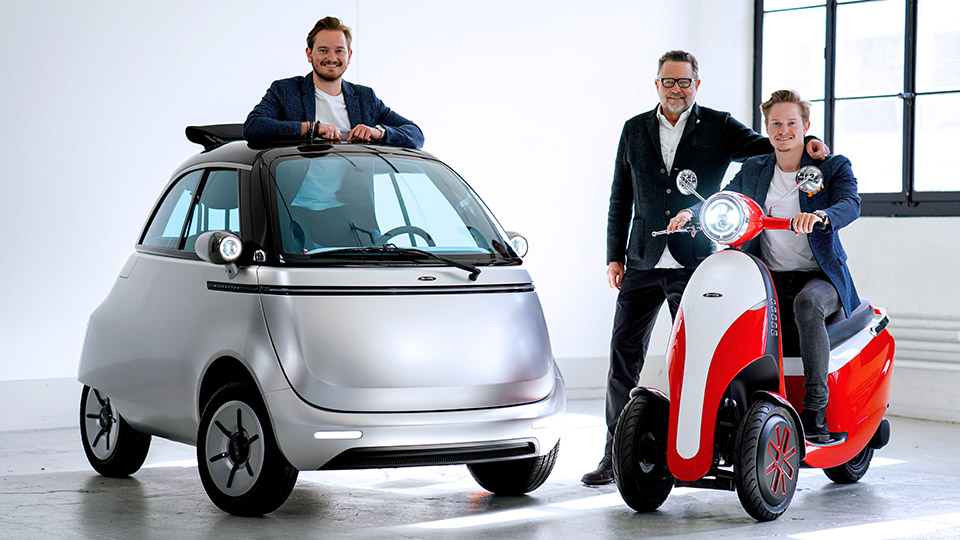
Micro Mobility Scooter the eco-friendly transport solution for short distances
In 1999, Swiss entrepreneur Wim Ouboter, driven by the need for a practical mode of transportation for short distances, introduced a kick scooter designed to offer both practicality and eco-friendliness. The response was immediate: Micro Mobility Systems AG, his company, sold an astonishing 80,000 kick scooters per day in its inaugural year, accumulating a total of over 30 million units sold within just one year.
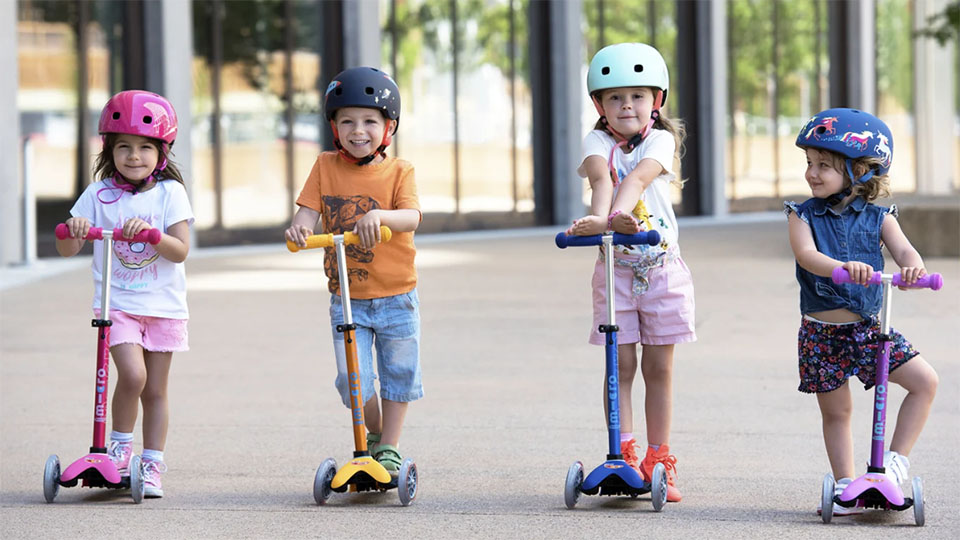
However, the triumph was short-lived. Within a year, the business faced a crisis as the market became inundated with pirated replicas of Ouboter's original model. Over 500 factories had copied Wim's Micro Scooter, sparking a ruthless price war. In response, Wim adopted a strategy centered on innovation. He tirelessly developed numerous iterations of the kick scooter, including the Mini Micro, a vibrant three-wheeled rendition that captured the hearts of children and quickly gained viral popularity.
On average, a car is occupied by only 1.2 people and driven just 35 km per day. This means that normal cars are too big for most of their usage, including electric SUVs, which is quite nonsensical if the purpose of electrification is to actually decarbonize and be more eco-friendly. In the realm of urban mobility, less is more.
Oliver Ouboter, Co-Founder Microlino
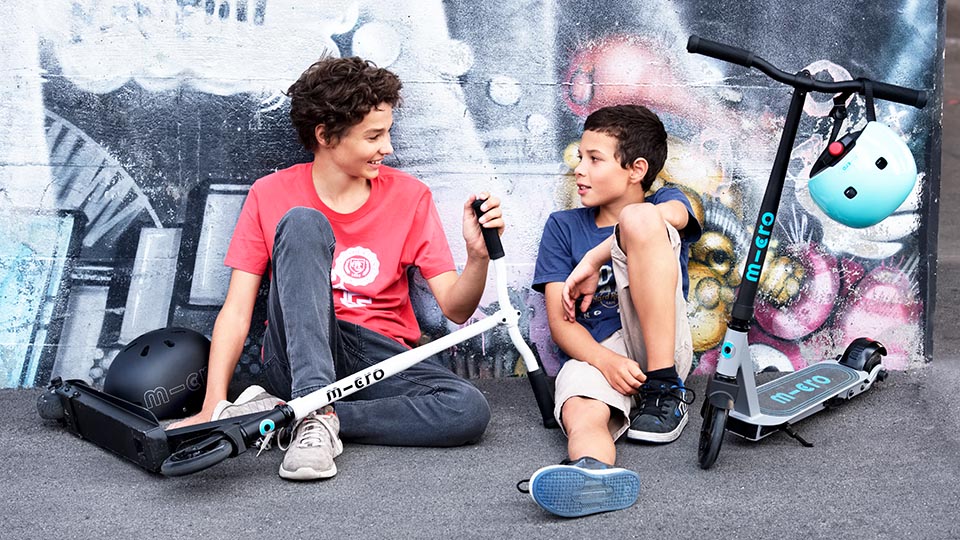
This commitment to innovation proved pivotal. Micro Mobility Systems continued to introduce further innovations, expanding its product line to over 50 offerings for children, teenagers, and adults, distributed in more than 80 countries. Proceeds from kickboard sales led to ventures in the electric scooter market in 2013 with the Emicro One, which received prestigious awards for its innovative design. In 2015, Wim's sons, Oliver and Merlin, joined the team, leading to an even more ambitious project: developing a lightweight electric vehicle to bridge the gap between motorbikes and cars and foster the transition to a greener society.
The Microlino Electric Bubble Car
The Microlino started with a simple question: "How much car do you really need for your daily commute? Wim, Oliver and Merlin couldn’t understand why most cars today are too big and too heavy for their purpose.

On average, a car is occupied by only 1.2 people and driven just 35 km per day. This means that normal cars are too big for most of their usage, including electric SUVs, which is quite nonsensical if the purpose of electrification is to actually decarbonize and be more eco-friendly. In the realm of urban mobility, less is more.
Oliver Ouboter, Co-Founder Microlino
In collaboration with Zurich University of Applied Sciences, final design and technical specifications were completed. A prototype was developed in China for the 2016 Geneva Motor Show debut. Despite last-minute challenges, the three Ouboters managed to secure a tiny 6 m² stand at the event. The Microlino electric bubble car debuted successfully, with about 500 reservations made within two days.
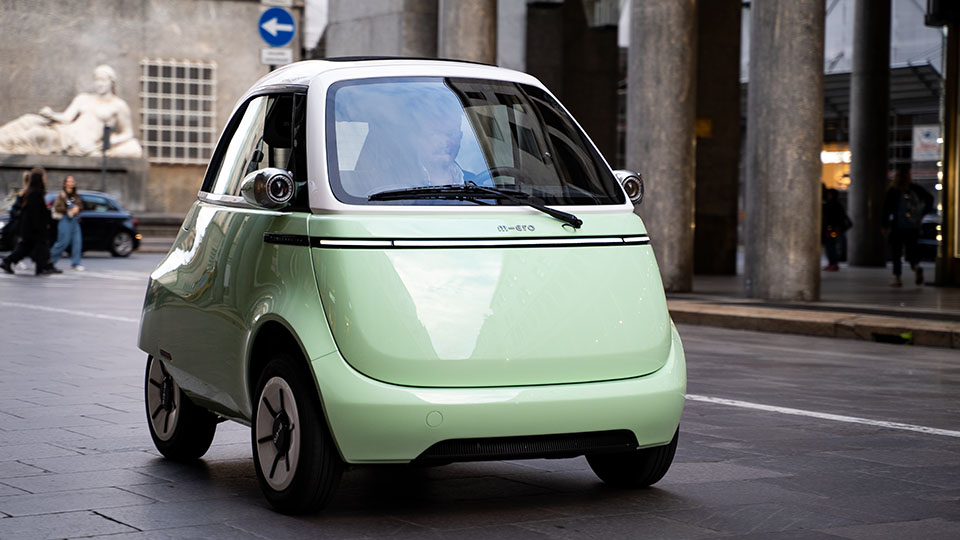
After intensive development, the first pre-series Microlino was unveiled in January 2018. It received official homologation in Europe later that year, and over 3,000 vehicles have been manufactured to date. Microlino plans to expand its market beyond Europe, aiming for introduction in the UK, Austria, Nordic countries, and potentially the USA.
A City Car with a Unique Functional Design
The Microlino electric micro car, as advertised on its website, can accommodate 2 adults and 3 beer crates. Its battery can be charged using a household plug in just 4 hours, and its compact size enables it to navigate busy traffic and park almost anywhere.
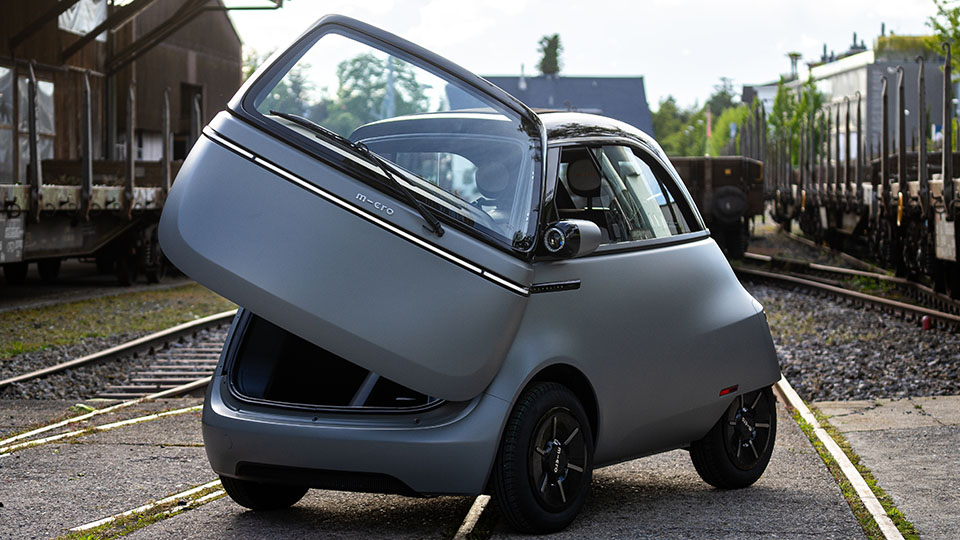
Central to its success is its design, entrusted to Icona, an Italian firm specializing in automotive design, styling, and engineering. Its conception blends retro aesthetics with modern functionality, driven by a user-centric approach and a commitment to innovation and sustainability. By embracing the teardrop shape reminiscent of vintage "bubble cars" like the iconic 1950s Isetta, the Microlino achieves a distinctive appearance while optimizing interior space and maneuverability.
Another key feature of the Microlino city car is the incorporation of a front-opening door, a feature not commonly seen in small urban vehicles. This design choice not only adds to the aesthetic appeal but also enhances practicality by enabling perpendicular parking and easy access to the sidewalk, making it well-suited for urban environments where space is limited.
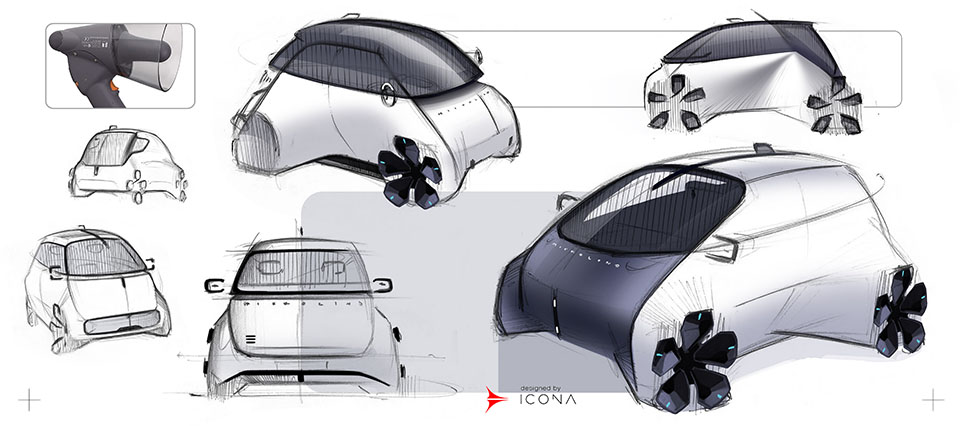
Additionally, widening the rear track for better stability and incorporating features like headlights integrated with rearview mirrors showcase the emphasis on both form and function in the Microlino's design.
Design is not just part of the process; it's Microlino’s cornerstone. It's crucial for emotional appeal in mobility, especially in this category, where aesthetics matter more than performance or power.
Oliver Ouboter, Co-Founder Microlino
Solidifying Position as Pioneers of Micro-Mobility with Design Protection
In an industry fraught with imitation and replication, the Ouboter family understands the paramount importance of safeguarding their designs. With a strategic approach to intellectual property rights, they register each new design before unveiling it to the public. This proactive stance not only protects their innovations but also solidifies their position as pioneers in the field of micro-mobility.
Every new product is registered in our target countries. This is part of our commercial strategy to ensure that we are the only ones allowed to use our designs and that we can take legal action if someone copies them.
Oliver Ouboter, Co-Founder Microlino
Years of research, development, and creative ingenuity culminate in their designs, making design protection essential for preserving the integrity of their brand and warding off counterfeit products that could dilute their market presence. The Hague System emerges as a vital tool in their arsenal, offering a streamlined mechanism for international design protection. By leveraging international design registration, they ensure comprehensive coverage across multiple jurisdictions, fortifying their designs against infringement and imitation.
This article demonstrates the transformative impact of IP-back innovation in supporting the following Sustainable Development Goals:

About the Hague System
WIPO’s Hague System provides a unique international mechanism for securing and managing design rights simultaneously in multiple countries or regions through one application, in one language with one set of fees.
Find out more
- Hague System Digital Information Kit
- How the Hague System works
- Filing international applications
- Managing international registrations
Want to share your story?
If you are interested in sharing your own Designs in Action story, illustrating how you’ve leveraged the Hague System to secure international design protection, we would love to hear from you! Contact Hague
